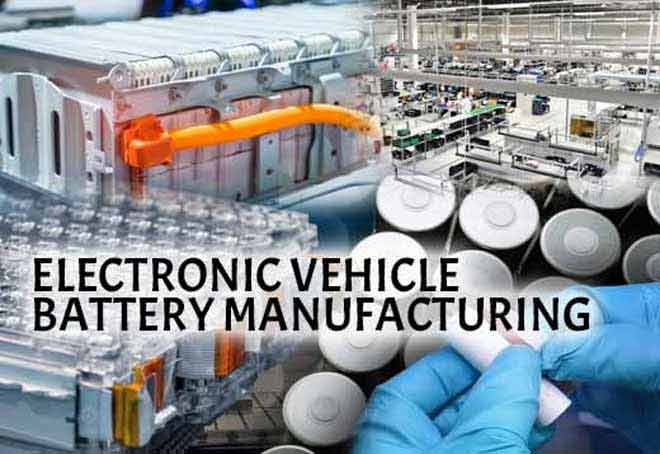DST and CSE to collaborate to build EV battery manufacturing capabilities
Updated: Nov 23, 2022 10:51:39am

DST and CSE to collaborate to build EV battery manufacturing capabilities
New Delhi, Nov 23 (KNN) The government’s Department of Science and Technology (DST) joined hands with the Centre for Science and Environment (CSE) to create a platform that will support the development of new electric vehicle batteries to suit and meet Indian requirements.
As per reports, a white paper will be prepared on a roadmap for the development of new battery technologies in India; this would be followed by the creation of an expert-industry forum or platform to support this process.
CSE and DST had recently organised a round table on locally appropriate EV batteries that are safe, durable and effective within the constraints of a hot and humid tropical climate.
This was the first in a series of consultations that will be held with experts from leading institutions and representatives from vehicle manufacturers, battery industry, regulatory bodies, testing entities and independent laboratories focused on battery chemistries.
Anumita Roychowdhury, executive director-research and advocacy, CSE said, “India has been working with FAME and production-linked incentives to push the EV story, but challenges abound with regard to cost, safety and charging infrastructure – all of which point at gaps in fulfilling the country’s zero emission ambitions. The gaps range from concerns relating to safety, supply chain, cost sensitivity and need for quick charging opportunities among others.”
“This joint initiative of DST and CSE is aimed at addressing these gaps and to create a platform that will assess, evaluate and identify technology solutions that are safe, have locally appropriate supply chain systems and can be customised for the various vehicle applications,” said Moushumi Mohanty, senior programme manager, Clean Air and Sustainable Mobility, CSE,
The round table brought forward several key issues for establishing future pathways.
Building volumes for EV battery manufacturing and ensuring the supply chain is an important issue. Suppose the global EV battery storage is expected to be 10,000 GWhr in 2030-35. In that case, India cannot be less than 5 per cent of the global battery manufacturing capacity, according to the CSE press note.
Other issues discussed at the meet included, Assessing the needs of Indian vehicles and the climatic stress to develop pathways for battery management and thermal management systems etc.
Small-format two-wheelers need appropriate, cost-effective solutions and EV battery chemistries in India need to be application-specific. Developing regulations and technical standards to push the battery trajectory is also important, along with attention to the ageing of batteries.
CSE also pointed out the need for developing regulations for the in-use performance and durability of EVs and databases on performance and safety parameters. Recycling of end of life batteries for material recovery and open-source battery management support for startups to make safe batteries was also highlighted.
In 2015, the Centre launched the Faster Adoption and Manufacturing of (Hybrid &) Electric Vehicles in India (FAME India) 1 Scheme to promote the manufacturing of electric and hybrid vehicles. (KNN Bureau)













